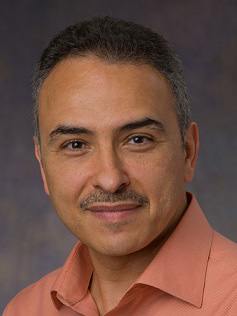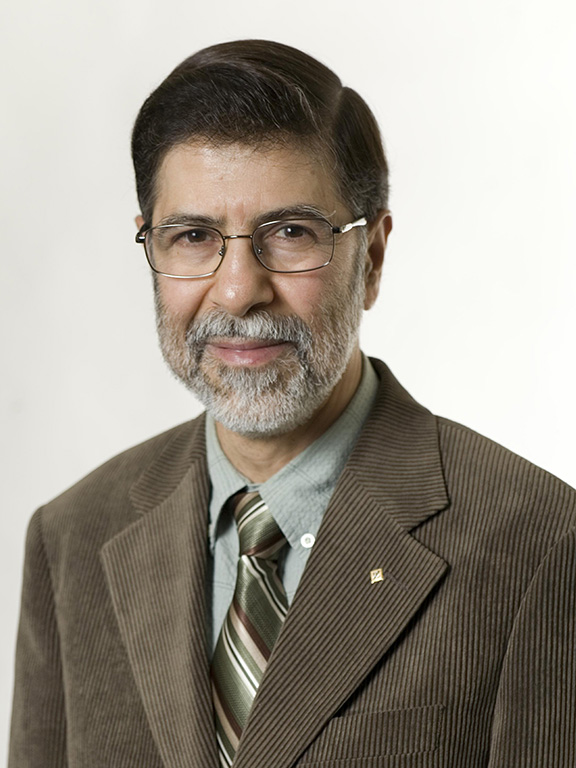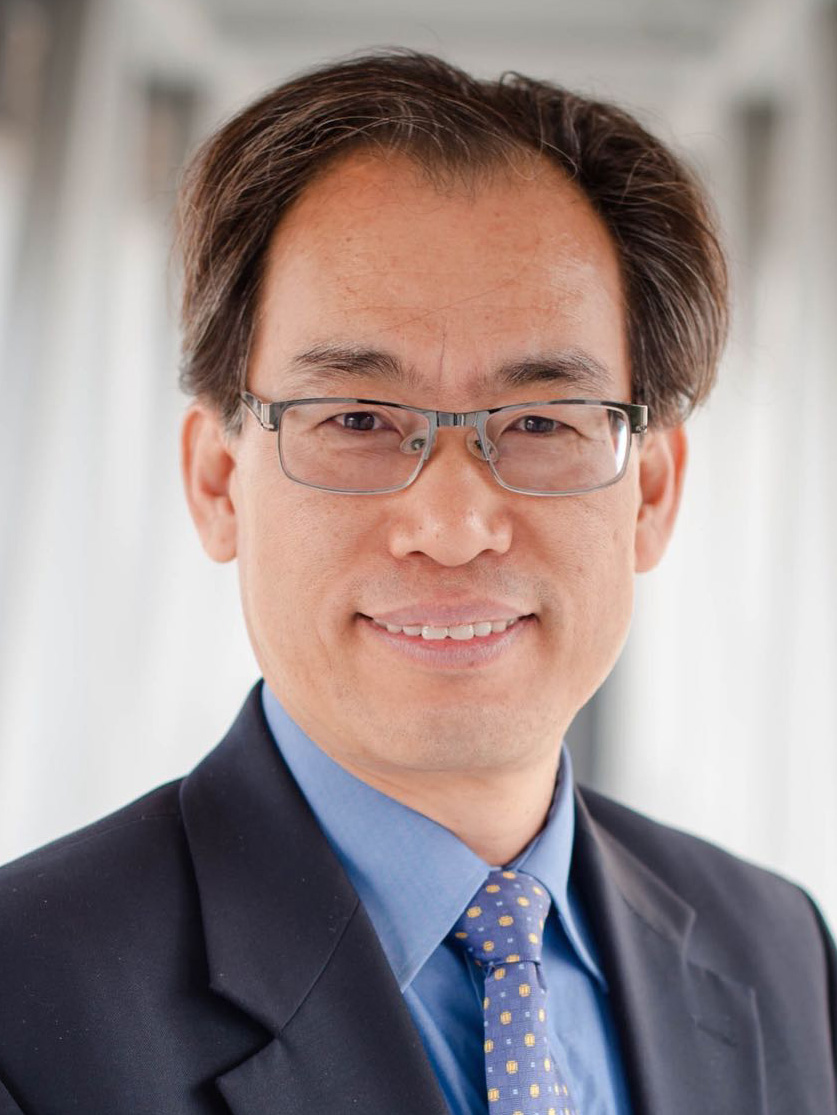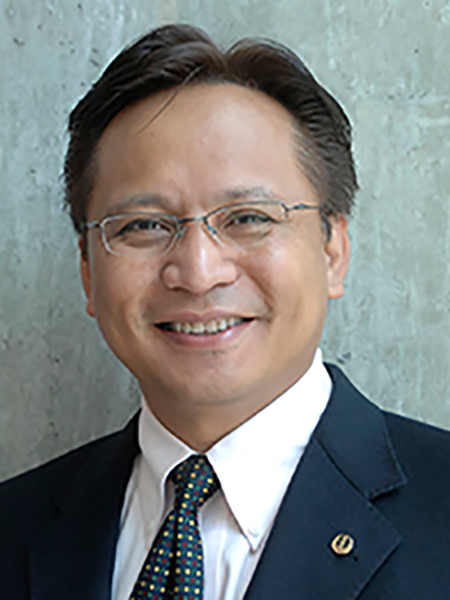






Hassam Hassanein (IEEE Fellow)
Professor, Queen's University, Canada
Title: Towards Provisioning Vehicle-Based Information Services
Time: 10:00 – 12:00, Monday, February 17, 2020
Abstract:
Intelligent vehicles are considered key enablers for intelligent transportation systems. They are equipped with resources/components to enable services for vehicle occupants, other vehicles on the road, and third party recipients. In-vehicle sensors, communication modules, and on-board units with computing and storage capabilities allow the intelligent vehicle to work as a mobile service provider of sensing, data storage, computing, cloud, data relaying, infotainment, and localization services. In this talk I introduce the concept of Vehicle as a Resource (VaaR) and shed light on the services a vehicle can potentially provide on the road or parked.
I also present Robust Crowdsensing for Intelligent Road Services (iDriveSense) – a framework to collect crowd-based information, monitoring road conditions and hazards; and, driver-based information, including driving style, preferences, skills and experience, to build representative driver profiles. iDriveSense integrates sensor technologies available in both the vehicles and the driver smartphones to provide advanced, robust localization and accurate monitoring of vehicle dynamics and driver behavior. Robustness is achieved through calibration and cross-referencing on two levels: a single-driver level and a cloud multi-driver level. Efficient route selection algorithms based on driver preferences are proposed, supported by road conditions monitored and reported in real time. This includes learning route preferences based on monitoring both the routes taken by drivers, and the drivers’ competence levels on different road types.
Biography:
Hossam Hassanein is a leading authority in the areas of broadband, wireless and mobile networks architecture, protocols, control and performance evaluation. His record spans more than 500 publications in journals, conferences and book chapters, in addition to numerous keynotes and plenary talks in flagship venues. Dr. Hassanein has received several recognition and best paper awards at top international conferences. He is the founder and director of the Telecommunications Research Lab (TRL) at Queen's University School of Computing, with extensive international academic and industrial collaborations. He is a fellow of the IEEE, and is a former chair of the IEEE Communication Society Technical Committee on Ad hoc and Sensor Networks (TC AHSN). Dr. Hassanein is an IEEE Communications Society Distinguished Speaker (Distinguished Lecturer 2008-2010).

Hussein T. Mouftah (IEEE Fellow)
University Distinguished Professor, Ottawa University, Canada.
Title: Technology Trends for Connected and Autonomous Electric Vehicles in Smart Cities
Time: 13:30 – 15:30, Monday, February 17, 2020
Abstract:
The transformation of our current cities into smarter cities will bring challenges in diverse areas such as the transportation system, the electricity system, and wearable systems, just to name a few. In smart cities, Information and Communication Technologies (ICT) will play a vital role for providing services in the urban environment. These services include real time monitoring and reaction in time through wireless sensor and actuator networks. Smart Grids (SGs), Intelligent Transportation Systems (ITS), Internet of Things (IoT), Electric Vehicles (EVs), and Wireless Sensor Networks (WSNs) will be the building blocks of futuristic smart cities. All these technologies will help in building smart cities. In this presentation we will address technology trends with a focus on autonomous vehicles and in particular on Connected and Autonomous Electric Vehicles (CAEVs) in smart cities. Current capabilities as well as limitations and opportunities of key enabling technologies will be reviewed, along with a discussion on the impact of such advances on society and the environment. All these technologies will help to build a smart city. In this presentation we will address technology trends with a focus on connected and autonomous electric vehicles in smart cities.
Biography:
Hussein T. Mouftah joined the School of Electrical Engineering and Computer Science of the University of Ottawa in 2002 as a Tier 1 Canada Research Chair Professor, where he became a University Distinguished Professor in 2006. He has been with the ECE Dept. at Queen's University (1979-2002), where he was prior to his departure a Full Professor and the Department Associate Head. He has six years of industrial experience mainly at Bell Northern Research of Ottawa (Nortel Networks). He served as Editor-in-Chief of the IEEE Communications Magazine (1995-97) and IEEE ComSoc Director of Magazines (1998-99), Chair of the Awards Committee (2002-03), Director of Education (2006-07), and Member of the Board of Governors (1997-99 and 2006-07). He has been a Distinguished Speaker of the IEEE Communications Society (2000-2007). He is the author or coauthor of 13 books, 73 book chapters and more than 1500 technical papers, 16 patents, 6 invention disclosures and 148 industrial reports. He is the joint holder of 24 Best/Outstanding Paper Awards. He has received numerous prestigious awards, such as the 2017 C.C. Gotlieb Medal in Computer Engineering and Science and the 2016 R.A. Fessenden Medal in Telecommunications Engineering of IEEE Canada, the 2015 IEEE Ottawa Section Outstanding Educator Award, the 2014 Engineering Institute of Canada K. Y. Lo Medal, the 2014 Technical Achievement Award of the IEEE Communications Society Technical Committee on Wireless Ad Hoc and Sensor Networks, the 2007 Royal Society of Canada Thomas W. Eadie Medal, the 2007–2008 University of Ottawa Award for Excellence in Research, the 2008 ORION Leadership Award of Merit, the 2006 IEEE Canada McNaughton Gold Medal, the 2006 EIC Julian Smith Medal, the 2004 IEEE ComSoc Edwin Howard Armstrong Achievement Award, the 2004 George S. Glinski Award for Excellence in Research of the University of Ottawa Faculty of Engineering, the 1989 Engineering Medal for Research and Development of the Association of Professional Engineers of Ontario, and the Ontario Distinguished Researcher Award of the Ontario Innovation Trust. Dr. Mouftah is a Fellow of the IEEE (1990), the Canadian Academy of Engineering (2003), the Engineering Institute of Canada (2005) and the Royal Society of Canada RSC Academy of Science (2008).

Min Song (IEEE Fellow)
Professor and Chair, Stevens Institute of Technology, USA
Title: New Algorithms Enabling On-Demand Dynamic Spectrum Allocation
Time: 16:00 – 18:00, Thursday, February 20, 2020
Abstract:
Spectrum sharing is a crucial technology to relieve the ever-increasing spectrum demand and realize the full potential of the wireless spectrum. In this talk, we first discuss spectrum sharing in geolocation-based spectrum access systems, particularly the spectrum sharing between priority access license (PAL) users and general authorized access (GAA) users. We develop a dynamic spectrum allocation scheme that allocates spectrum to a PAL user based on its spectrum need and allows GAA users to utilize the unallocated spectrum. We evaluate the performance of PAL users and GAA users and investigate how the PAL users will impact the spectrum availability and stability of the GAA users. In the second part of the talk, we will introduce an application-oriented spectrum sharing architecture and an analytical model. The spectrum sharing architecture enables users to set up virtual topologies to carry out applications dynamically. The analytical model can be used to estimate the blocking probability of spectrum demands and the network capacity. Finally, we briefly discuss the state-of-the-art spectrum sharing schemes and technologies in 5G networks and beyond.
Biography:
Min Song is a Professor and Chair of the Department of Electrical and Computer Engineering at Stevens Institute of Technology. Before joining Stevens, he was the David House Professor and Chair of the Computer Science Department and a Professor of Electrical and Computer Engineering at Michigan Technological University from 2014 to 2018. He was also the Founding Director of the Michigan Tech Institute of Computing and Cybersystems. Prior to joining Michigan Tech, he served as a Program Director with the National Science Foundation (NSF) from 2010 to 2014. His current research interests include cognitive radio networks and spectrum management, Internet of Things and cyber-physical systems, mobile computing and cybersecurity, wireless communication networks, artificial intelligence and machine learning, and engineering education. Over the course of his career, he has published more than 170 technical articles and held various leadership positions. He also served as the IEEE Communications Society Director of conference operations, a member of the Board of Governors from 2016 to 2017, and as a journal editor and the conference chair on several initiatives. He was a recipient of the NSF CAREER Award in 2007. He is an IEEE Fellow.

Moe Win (IEEE Fellow)
Professor, MIT, USA
Title: Localization of Things
Time: 16:00 – 18:00, Monday, February 17, 2020
Abstract:
The availability of positional information is essential for numerous wireless applications including crowdsensing, autonomous driving, and Internet-of-Things. The coming years will see the emergence of location-aware networks with sub-meter localization accuracy even in GNSS-challenged environments. This calls for Localization-of-Things (LoT), a new paradigm that refers to locating, tracking, and navigating collaborative or non-collaborative nodes (sensors, vehicles, and objects). Our work relies on statistics, optimization, and communication theory, and it approaches LoT from different perspectives: theoretical framework, cooperative algorithms, network operations, and network experimentation. This talk will give an overview of LoT and provide our recent research results in this exciting field.
Biography:
Moe Win is a Professor at the Massachusetts Institute of Technology (MIT) and the founding director of the Wireless Information and Network Sciences Laboratory. Prior to joining MIT, he was with AT&T Research Laboratories and NASA Jet Propulsion Laboratory. His research encompasses fundamental theories, algorithm design, and network experimentation for a broad range of real-world problems. His current research topics include network localization and navigation, network interference exploitation, and quantum information science.
Professor Win is a Fellow of the AAAS, the IEEE, and the IET. He has served the IEEE Communications Society as an elected Member-at-Large on the Board of Governors, as elected Chair of the Radio Communications Committee, and as an IEEE Distinguished Lecturer. He was honored with two IEEE Technical Field Awards: the IEEE Kiyo Tomiyasu Award and the IEEE Eric E. Sumner Award (jointly with Professor R. A. Scholtz). Together with students and colleagues, his papers have received several awards. Other recognitions include the IEEE Communications Society Edwin H. Armstrong Achievement Award, the International Prize for Communications Cristoforo Colombo, the Copernicus Fellowship and the Laurea Honoris Causa from the Università degli Studi di Ferrara, and the U.S. Presidential Early Career Award for Scientists and Engineers. He is an ISI Highly Cited Researcher.